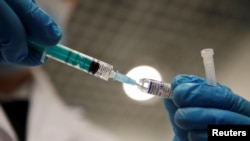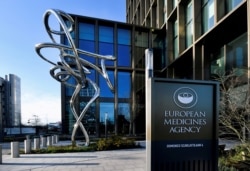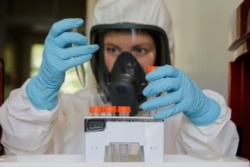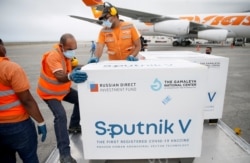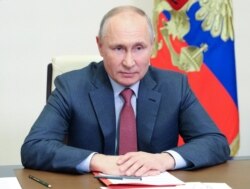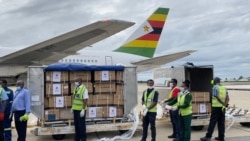Doubts are mounting about the efficacy of Russia’s Sputnik vaccine. Drug regulators in the Czech Republic and Brazil have withheld approval and counterparts in Slovakia have also expressed doubts.
European Union regulators are still assessing Sputnik for its effectiveness and safety but a former executive director of the European Medicines Agency, EMA, told the Politico.eu news site that objections raised about Sputnik by Brazil’s regulatory authority, Anvisa, would likely be taken seriously by their counterparts in Brussels.
“It's a very mature authority,” said Rasi, who added that its flagging of quality and safety issues are worrisome. Anvisa announced on April 28 that it was withholding approval because of “flaws in product development” which deviate from the quality standards recommended by the World Health Organization (WHO).
The authority also noted “an absence or insufficiency of quality control, safety and efficacy data.” It raised concerns also with the vaccine’s efficacy for people “with low immunity and respiratory problems, among other health problems.” The Slovak medicines authority has also expressed worries about quality control and insufficient data. Irena Storová, head of SÚKL, told Slovakia’s Radiožurnál recently that the regulator received “only a fraction of the documentation that is submitted by default for the registration or assessment of a drug or medicine.”
Sputnik was the first coronavirus vaccine to be registered, albeit only by the Russians and not by an authoritative international regulator. Funded by the state and developed by the Gamaleya Research Institute in Moscow, the rapid Russian approval last year in August of the vaccine, which was named for the satellite from half a century ago, was met with skepticism in the broader international scientific community.
Experts expressed their disapproval of Russian authorities for approving distribution before the completion of trials, suggesting the rapidity of authorization was done so as to be able to tout Russian scientific prowess.
Doubts about the vaccine's efficacy dissipated somewhat last year within the Western scientific community due to a study by Russian scientists published by the authoritative British medical journal The Lancet, which suggested the vaccine has a 91.6% efficacy rate against COVID-19, the illness caused by the coronavirus.
Geopolitical motives
Nonetheless, some Central European and Baltic governments have been trading barbs with the Kremlin for what they see as a “Sputnik diplomatic offensive” designed to foment political splits in the Western alliance.
Officials in Kyiv and Warsaw identify geopolitical motives behind Russia’s touting of the vaccine, especially in light of what they say has been a Russian disinformation campaign casting doubt on Western-developed vaccines. Russian officials say politics is behind Western skepticism of Sputnik.
Lithuania's prime minister has labeled the vaccine “another hybrid weapon” for the Kremlin to wield to try to "divide and rule" Europe. Ingrida Šimonytė says altruism isn’t what motivates the aggressive marketing by Russia of Sputnik. “Sputnik comes packed with many layers of propaganda and even not-hidden ambition to divide the EU countries and their partners in the South and in the East,” she said earlier this year.
Facing shortfalls for Western vaccines amid the EU’s contentious rollout, other European states, though, started to buy Sputnik with Hungary first up followed by Serbia. Austria struck a deal and officials in Berlin and in several German regions expressed enthusiasm for the Russian vaccine. But with a boost in supplies of Western vaccines, appetite for Sputnik has dissipated and last week Germany’s Bild newspaper reported that the deal to sell the Sputnik V vaccine to Germany is dead.
Meanwhile, outside Europe, the Russian vaccine has been bought by more than 50 countries including Argentina, Mexico, and Turkey. India, where the pandemic has spiraled out of control, has signed a deal for nearly 400 million doses.
Growing doubts
But scientific doubts about Sputnik remerged last week when The Lancet published a paper by a team of scientists drawn from Europe, the U.S. and Russia questioning the 2020 study of the vaccine the medical journal published and flagging significant discrepancies in the data from the phase two and three trials conducted by the Gamaleya Research Institute, the vaccine’s developer.
“Restricted access to data hampers trust in research,” the scientists said in last week’s study. “Access to data underpinning study findings is imperative to check and confirm the findings claimed. It is even more serious if there are apparent errors and numerical inconsistencies in the statistics and results presented,” they said. The team included Enrico Bucci of Temple University in the U.S., Gowri Gopalakrishna from Amsterdam University and Raffaele Calogero from the University of Turin.
In reply, scientists from the Gamaleya Research Institute say data discrepancies occurred because of typing errors and they point to the approval of Sputnik by 51 countries showing they have been “fully transparent and comply with all regulatory requirements.”
Russian President Vladimir Putin on Thursday during a video conference praised Russia's vaccine, saying it as “reliable as a Kalashnikov assault rifle.”
Sputnik isn’t the only non-Western vaccine prompting reservations. Despite approval by WHO of China’s Sinopharm, some scientific researchers have expressed worries about the lack of data on that vaccine’s efficacy, too, and likewise with Sinovac, another Chinese vaccine.
According to researchers outside China, Sinovac’s efficacy rate is around 50%, and Sinopharm’s 79%, much lower than that of the rates for U.S.-developed vaccines like Moderna and Pfizer, both of which are above 90%.




